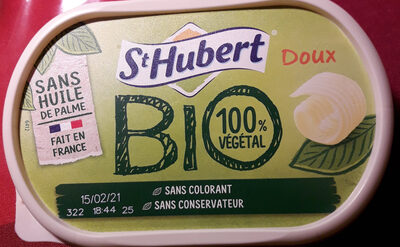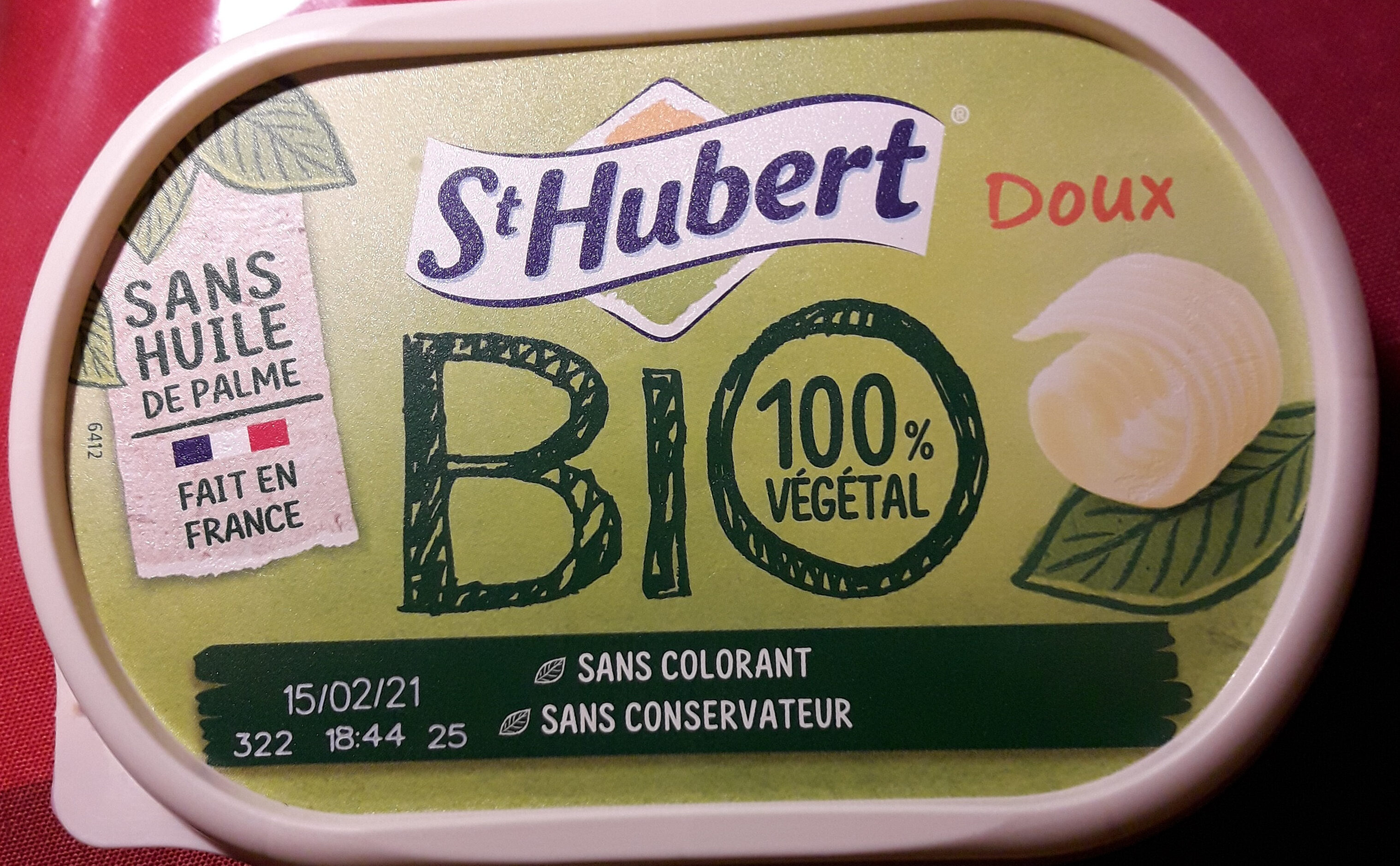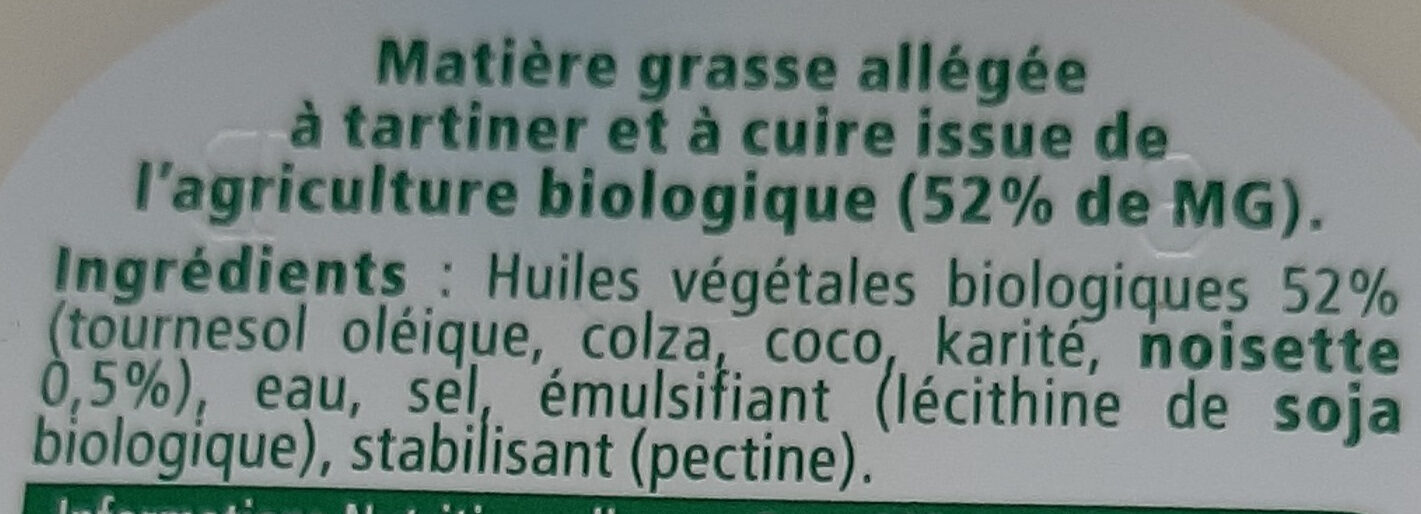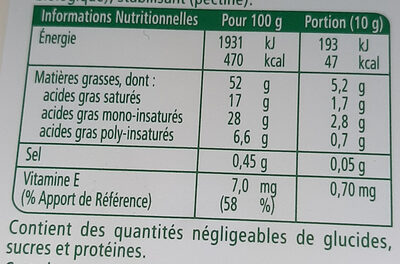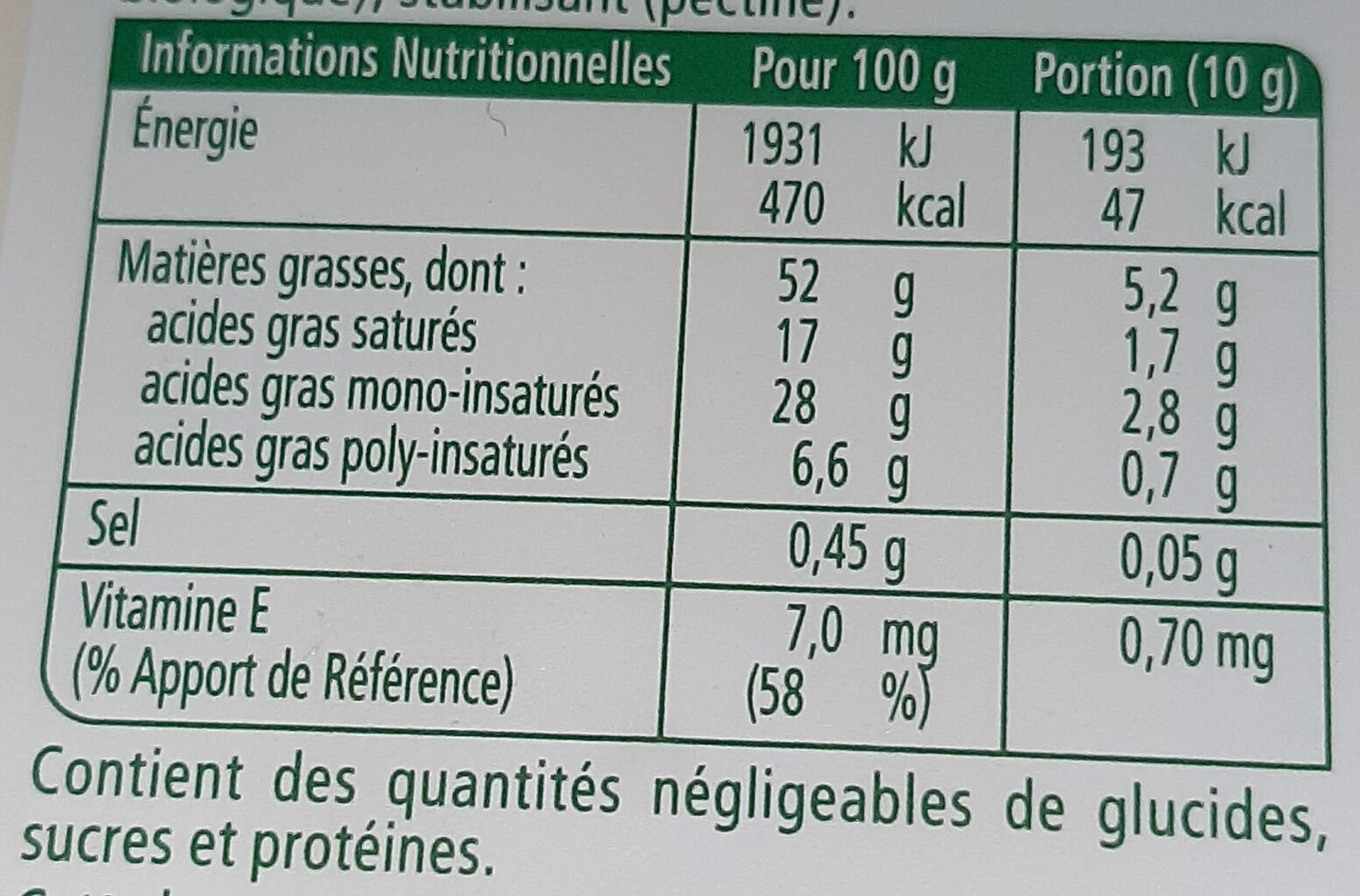St Hubert Doux Bio 100 % végétal - 245 g
This product page is not complete. You can help to complete it by editing it and adding more data from the photos we have, or by taking more photos using the app for Android or iPhone/iPad. Thank you!
×
Some of the data for this product has been provided directly by the manufacturer SAINT HUBERT.
Barcode: 3366321052331 (EAN / EAN-13)
Allgemengen Numm:: Matière grasse allégée à tartiner et à cuire issue de l'agriculture biologique (52% de MG).
Quantitéit: 245 g
Verpackungsart: en:Plastic, en:Refrigerated, en:Tray
Marken: St Hubert, St hubert bio
Kategorien: en:Plant-based foods and beverages, en:Plant-based foods, en:Fats, en:Spreads, en:Plant-based spreads, en:Salted spreads, en:Spreadable fats, en:Vegetable fats, en:Margarines, en:Light margarines
Labelen, Zertifizéierungen, Auszeechnungen:
en:Organic, en:EU Organic, en:No preservatives, en:Non-EU Agriculture, en:EU Agriculture, en:EU/non-EU Agriculture, FR-BIO-01, en:Green Dot, en:Made in France, en:No colorings, en:No palm oil, AB Agriculture Biologique


Ursprong vun den Zutaten: en:Unknown
Fabrikant oder Veraarbechtungsplaatz: Inconnue
Traceability code: INCONNU
Geschäfter: Quantités
Country: Frankräich, Departement Guadeloupe, Lëtzebuerg (Land), Departement La Réunion, Schwäiz
Matching with your preferences
Environment
Carbon footprint
Verpackungsart
Transportation
Labels
Other information
Conservation conditions: A conserver entre 0°C et 8°C.
Customer service: ST HUBERT, 13-15 rue du Pont des Halles 94526 RUNGIS
Report a problem
Data sources
The manufacturer SAINT HUBERT uses Equadis to automatically transmit data and photos for its products.
Product added on vun kiliweb
Last edit of product page on vun naruyoko.
Produkt Säit och geännert vun cindyll77, date-limite-app, desan, drunkenbison, ecoscore-impact-estimator, envol-vert, gusscorp, inf, judith3, julie-yuka, mama-gogo, mannx, marmotte73, moon-rabbit, mr38, openfoodfacts-contributors, org-saint-hubert, packbot, roboto-app, scanbot, sebleouf, teolemon, yuka.RjRaZE5MWUYvS01taGZNazJ6NysrTUJMeDdLdUJ6T2FBdXM3SVE9PQ, yuka.Ulk4Y09wWWs5OEF3eGN3UzFDeUwzZEJMNEtId1ZteWVJUE16SVE9PQ, yuka.VEpnK05vNEdtYVVsbmNVMTRRbnA1Y042bDZHbFUwbW1lN284SUE9PQ, yuka.WXB3c0xhOFByZWs0d1BjZHdnT0YySXg4eDRHRlEwK1hKdFJLSVE9PQ, yuka.WXE0QUhZNVkvTm9qdjlnejVCUGE1K0F0eVpHSUJtNkpFUEVhSVE9PQ, yuka.ZVlBY0hKZzl1ZWNyaC9RNHdETEkvdDVMbHI2cmUzeTRNK0JJSVE9PQ, yuka.Zm9RbVFJVVpoL2NPc3NjSHhnLzMrdmhSd0lMNVFEdWVFZFpNSUE9PQ.
